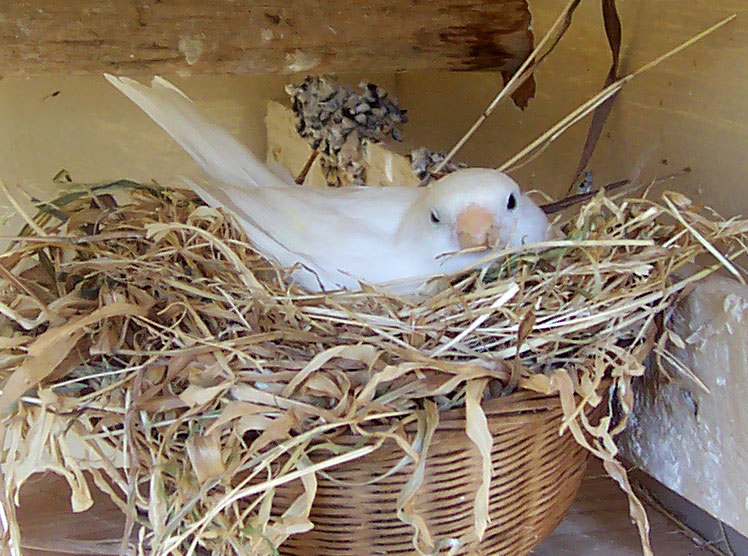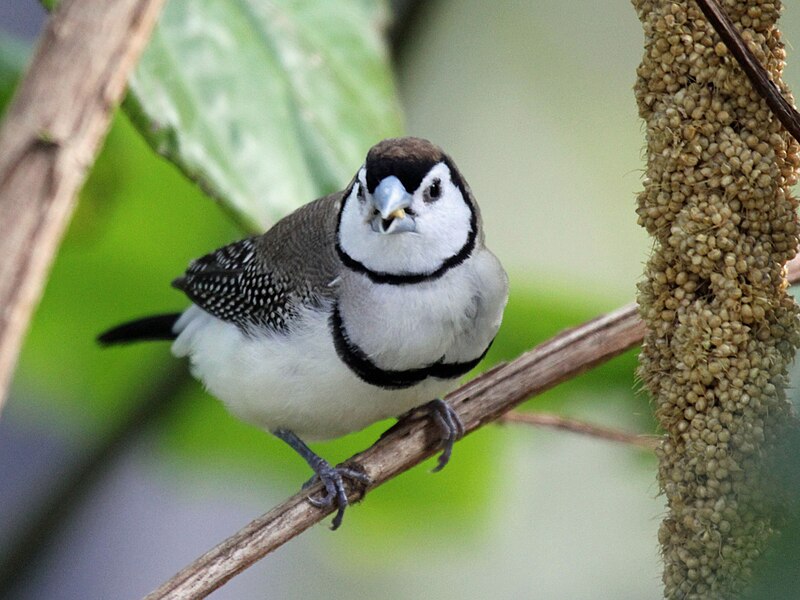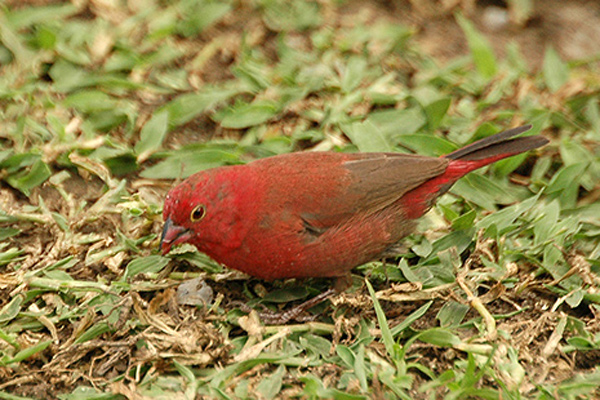A recent study at the University of Cambridge has shocked ornithologists and bird hobbyists alike. Writing in the March 12, 2010 edition of Science, researchers revealed that female Canaries (Serinus canaria) influence the behavior of chicks that are still developing in the egg.
Chemical “messages” deposited in the egg somehow communicate what type of environment, in terms of food availability, the chicks should “expect” upon hatching. By switching eggs among the nests of parents with access to differing amounts of food, the researchers established that the chicks’ begging behavior was established prior to hatching.
Food Rich vs. Food-Poor Habitats
 Well-fed and malnourished female Canaries provided different information to their chicks.
Well-fed and malnourished female Canaries provided different information to their chicks.
Chicks that will be raised in a food-rich environment are primed to beg vigorously, so as to get the most food possible and grow quickly (the loudest, most aggressive “begger” will get more food from its parents than quieter siblings).
Chicks whose parents will be unable to provide food in abundance are more subdued in their efforts. In theory, by conserving energy that would be wasted on “pointless” begging, the chicks can put more of their limited resources into growth.
In each situation, rapid growth and quick fledging are encouraged by the chicks’ behavior.
It has been known for quite some time that birds can influence the development of egg-bound chicks. However, it was always assumed that messages provided by the mother would be for the purpose of assisting her survival…this is the first evidence that chicks can also benefit.
Take-Home Message for Bird Owners
This newly discovered information reinforces the importance of providing your Canaries and other birds with nutritious foods in generous proportions, especially as the breeding season approaches.
Useful foods for pre-conditioning potential Canary parents include fresh sprouts (our Sprout Pot is an excellent source) and greens, egg food and small live and Canned Insects.
Further Reading
The background research that eventually led to this interesting discovery can be found in this National Academy of Sciences article.
You can see a video of a pair of Canaries feeding their chicks Here.
 Whether they are hand or parent-reared, young Canaries usually need some encouragement to switch from the nestling to adult diet. This change-over period can be quite stressful, but there are a number of steps you can take to ease the transition.
Whether they are hand or parent-reared, young Canaries usually need some encouragement to switch from the nestling to adult diet. This change-over period can be quite stressful, but there are a number of steps you can take to ease the transition. That Bird Blog – Bird Care and History for Pet Birds
That Bird Blog – Bird Care and History for Pet Birds



